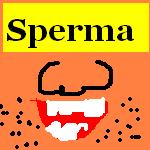You are not logged in.
#1 29.09.2010 00:01
- Rukoile kuolemaa
- Member

- From: Äijjälä
- Registered: 26.07.2009
- Posts: 2,066
Tässä viestiketjussa keskustella New Wavesta
Varmaan tällainen topsu jostain moden perseestä taas jo löytyy :x
Ei se mitään. Kirppikselta tarttui mukaan tällaisen The Cut nimisen bändin älppy Shadow Talks. 
Ensinnäkin biisit ovat hyviä ja meneviä. Kaiken kruunaa tuotanto, joka on ihan ässää. Tulee ihan mielen joku Kotiteollisuus. Kunnon mättöä!
vittu et tiennyt kenelle vittuilit, mutta vittu tiedät sen nyt
Offline
#2 29.09.2010 11:36
- psykokarkki
- uses and endorses MUOVIKASSI and COMMUNISM ☭

- From: #Mitään UG:tä ei ole olemassa freak "skene"
- Registered: 14.11.2006
- Posts: 104,135
- Website
Re: Tässä viestiketjussa keskustella New Wavesta
do you want new wave or do you want the truth? 
hieman epämääräinen käsite tää toki, aikanaanhan uusi aalto miellettiin jonkinlaiseksi "post-punkiksi" mutta jenkeissä lähinnä new waveksi laskettiin enempi kaikenmaailman syntikkabändit mut täähän on raskaammassa. jäämme siis odottelemaan mielenkiintoista asiakeskustelua ![]()
![]()
Offline
#3 29.09.2010 17:13
- Jean-Babtiste
- spämking machine

- From: Henkinen Kuvola
- Registered: 02.10.2006
- Posts: 30,616
Re: Tässä viestiketjussa keskustella New Wavesta
Post punkit raskaampaan, new wavet kevyempään ja no wavet ja new aget ei-popimpaan, mut no age ilmeisesti raskaampaan? ![]()
PS New wave of teh new wavet kans kevyempään!
'My only premise is that there are times when one must attack with complete ruthlessness and fight with lethal fury. This fury and ruthlessness must be harnessed and directed to the gravest possible damageto kill.'
ontäs aiankin joku turska joo DECICIDERS
Offline
#5 29.09.2010 19:03
- Jean-Babtiste
- spämking machine

- From: Henkinen Kuvola
- Registered: 02.10.2006
- Posts: 30,616
Re: Tässä viestiketjussa keskustella New Wavesta
![]()
![]()
'My only premise is that there are times when one must attack with complete ruthlessness and fight with lethal fury. This fury and ruthlessness must be harnessed and directed to the gravest possible damageto kill.'
ontäs aiankin joku turska joo DECICIDERS
Offline
#6 29.09.2010 20:28
- Rukoile kuolemaa
- Member

- From: Äijjälä
- Registered: 26.07.2009
- Posts: 2,066
Re: Tässä viestiketjussa keskustella New Wavesta
Ootte suht' gay koko porukka ![]()
vittu et tiennyt kenelle vittuilit, mutta vittu tiedät sen nyt
Offline
#7 29.09.2010 20:31
- Rukoile kuolemaa
- Member

- From: Äijjälä
- Registered: 26.07.2009
- Posts: 2,066
Re: Tässä viestiketjussa keskustella New Wavesta
Ei saatana, on tää kyl nyt ihan väärässä paikassa.
The term "New Wave" itself has been a source of much confusion and controversy. It was used in 1976 in the UK by punk fanzines such as Sniffin' Glue, and then by the professional music press.[15] In a November 1976 article in Melody Maker, Caroline Coon used Malcolm McLaren's term "New Wave" to designate music by bands not exactly punk, but related and part of the same musical scene;[16] the term was also used in that sense by music journalist Charles Shaar Murray, while writing about The Boomtown Rats.[17] For a period of time in 1976 and 1977 the two terms were interchangeable.[6][18] By the end of 1977, "New Wave" had replaced "Punk" as the definition for new underground music in the UK.[15]
In the United States, Sire Records needed a term by which it could market its newly signed bands, who had frequently played the club CBGB. Because radio consultants in the United States had advised their clients that punk rock was a fad, they settled on the term "New Wave". Like those film makers, its new artists, such as the Ramones and Talking Heads, were anti-corporate and experimental. At first most American writers exclusively used the term "New Wave" to describe British punk acts. Starting in December 1976, The New York Rocker, which was suspicious of the term "punk," became the first American journal to enthusiastically use the term starting with British acts, and later appropriating it to acts associated with the CBGB scene.[15]
Music historian Vernon Joynson states that new wave emerged in the U.K. in late 1976, when many bands began disassociating themselves from punk.[19] Music that followed the anarchic garage band ethos of the Sex Pistols was distinguished as "punk", while music that tended toward experimentation, lyrical complexity, or more polished production, came to be categorized as "New Wave". This came to include musicians who had come to prominence in the British pub rock scene of the mid-1970s, such as Ian Dury, Nick Lowe, Eddie and the Hot Rods and Dr. Feelgood;[20] and according to allmusic "angry, intelligent" singer-songwriters who "approached pop music with the sardonic attitude and tense, aggressive energy of punk" such as Elvis Costello, Joe Jackson, and Graham Parker.[21] In the U.S., the first New Wavers were the not-so-punk acts associated with the New York club CBGB, such as Talking Heads, Mink DeVille and Blondie.[7] CBGB owner Hilly Kristal, referring to the first show of the band Television at his club in March 1974, said, "I think of that as the beginning of new wave."[22] Furthermore, many artists who would have originally been classified as punk were also termed New Wave. A 1977 Phonogram Records compilation album of the same name (New Wave) features US artists including the Dead Boys, Ramones, Talking Heads and The Runaways.[7][23]
The New Wave sound of this era represented a break from the smooth-oriented blues and rock & roll sounds of late 1960s to mid 1970s rock music. According to music journalist Simon Reynolds, the music had a twitchy, agitated feel to it. New Wave musicians often played choppy rhythm guitars with fast tempos. Keyboards were common as were stop-and-start song structures and melodies. Reynolds noted that New Wave vocalists sounded high-pitched, geeky and suburban.[10]
Power Pop, a genre that started before punk at the very beginning of the 1970s, became associated with New Wave at the end of the decade because their brief catchy songs fit into the mood of the era. The Romantics, The Records, The Motors,[7] Cheap Trick, and 20/20 were groups that had success playing this style.[24] Helped by the success of power pop groups such as The Knack, skinny ties became fashionable among New Wave musicians.[6]
A revival of ska music led by The Specials, Madness and the English Beat added humor and a strong dance beat to New Wave.[1]
Later still, "New Wave" came to imply a less noisy, often synthesizer-based, pop sound. The term post-punk was coined to describe groups such as Gang of Four, Joy Division, The Cure, and Siouxsie and the Banshees that were initially considered part of the new wave but were more ambitious, serious and challenging, darker, and less pop oriented. Some of these groups would later adopt synths.[25][26] Although distinct, punk, New Wave, and post-punk all shared common ground: an energetic reaction to the supposedly overproduced, uninspired popular music of the 1970s.[27]
Allmusic explained that New Wave's stylistic diversity occurred because New Wave "retained the fresh vigor and irreverence of punk music, as well as a fascination with electronics, style, and art". This diversity extended to the numerous one hit wonders that came out of the genre.[29][30]
The term fell out of favour in the United Kingdom during the early 1980s because its usage had become too general.[7] Conventional wisdom holds that the genre "died" in the middle of the 1980s. Theo Cateforis, Assistant Professor of Music History and Cultures at Syracuse University, contends New Wave "receded" during this period when advances in synthesizer technology caused New Wave groups and mainstream pop and rock groups to sound more alike.[6]
vittu et tiennyt kenelle vittuilit, mutta vittu tiedät sen nyt
Offline
#8 29.09.2010 21:18
Offline
#9 03.10.2010 14:22
- Rukoile kuolemaa
- Member

- From: Äijjälä
- Registered: 26.07.2009
- Posts: 2,066
Re: Tässä viestiketjussa keskustella New Wavesta
Nyt soi Illi Bromanin I'm Right. Ilmeisesti tamperelainen, hieman transun näköinen jamppa. Kohtuullisen tiukkaa kamaa, tulee hieman Wang Chung mieleen. Ikinä en ollut tästä häiskästä aiemmin kuullut, vaikka poko on näemmä tämän julkaissut.
vittu et tiennyt kenelle vittuilit, mutta vittu tiedät sen nyt
Offline
#10 03.10.2010 17:32
- Papa Kakkahousu
- Member

- Registered: 19.06.2010
- Posts: 106
Re: Tässä viestiketjussa keskustella New Wavesta
Mekaanisii kakkui ja Split Enzii tulee kuunneltuu.
Offline
#11 02.03.2011 08:59
Re: Tässä viestiketjussa keskustella New Wavesta
SOSDO MASSA KOMOROSSA
Offline
#12 02.03.2011 10:44
- psykokarkki
- uses and endorses MUOVIKASSI and COMMUNISM ☭

- From: #Mitään UG:tä ei ole olemassa freak "skene"
- Registered: 14.11.2006
- Posts: 104,135
- Website
Re: Tässä viestiketjussa keskustella New Wavesta

Offline
